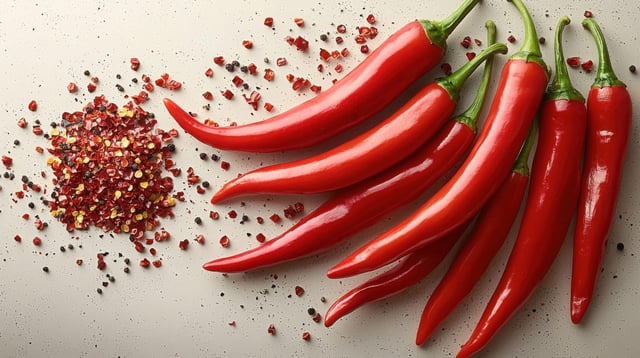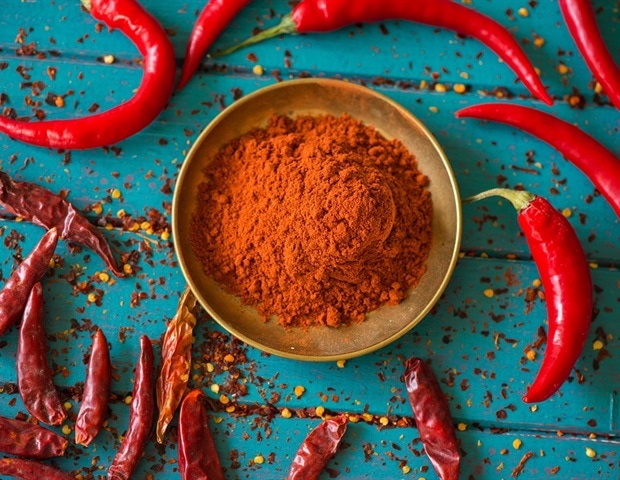Overview
- Scientists at Ohio State University identified capsianoside I, roseoside, and gingerglycolipid A as compounds that naturally reduce the sensation of spiciness in chili peppers.
- The study challenges the century-old Scoville scale by showing that perceived heat is influenced by more than just capsaicinoid concentration.
- Sensory tests revealed that these compounds reduced perceived heat by 0.7 to 1.2 points on a 15-point scale, even when capsaicin levels were identical.
- Potential applications include creating an 'anti-spice' condiment to make spicy foods more palatable and developing gentler pain therapies targeting TRPV1 receptors without causing burning sensations.
- The findings, published in the Journal of Agricultural and Food Chemistry, emphasize the role of minor compounds in shaping sensory perception and could lead to innovations in food and medicine.

